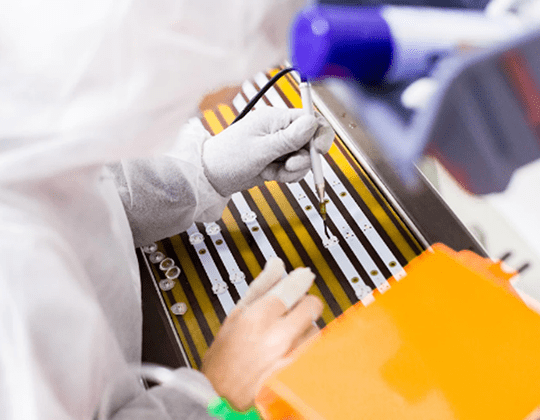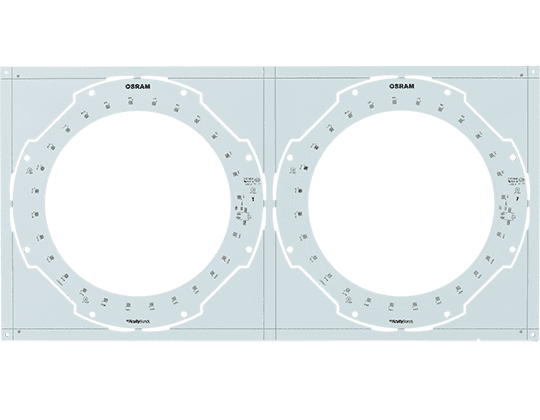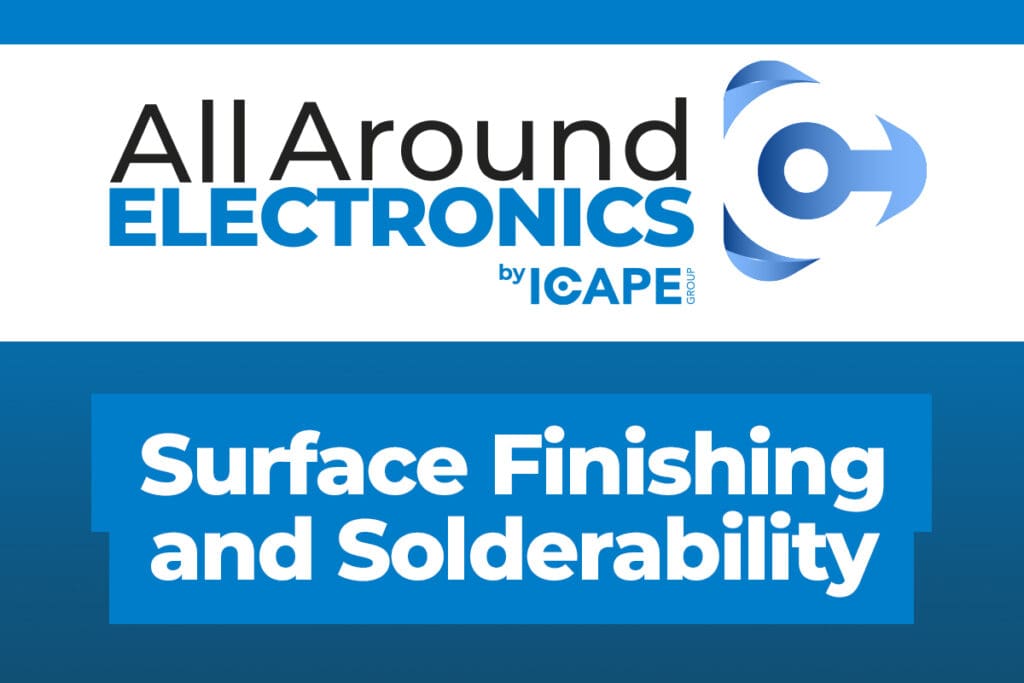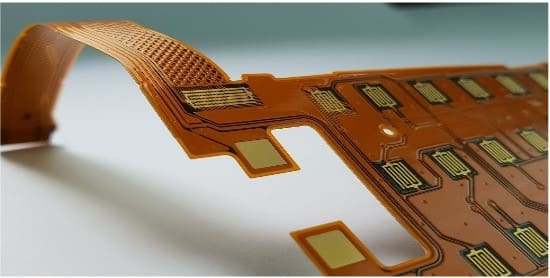Aluminum - IMS PCB
Lighting Ready
Product Benefits

Cost Effective
Aluminum (Al) is the third most abundant element since it is a main component of many minerals. Aluminum is easy to collect and recycle, making it very economically affordable.

Heat Dissipation
High-temperature tolerance enables a higher density of LEDs. Aluminum has superior heat dissipation when compared with fiberglass-printed circuit boards.

High Durability
More strength and durability than the fiberglass layer. Its strength is an advantage during the manufacturing process and everyday use.

Lightweight
Aluminum is one of the lightest metals with a density of 2.7g/cm3, which corresponds to approx. a third of steel 7.8g/cm3 or copper with 8.96g/cm3.
What is Aluminum PCB?
Definition
Aluminum base core material provides a superior and economical solution for managing component temperatures in electronic applications such as LED lighting, power supplies, motor control systems, and many others.
Most Alu IMS boards are single-sided, but the production of double-sided is possible. The dielectric layer between the Cu and the Alu provides a thermal conductivity between 0,6 to 7,0W/mK (Watt per meter Kelvin), depending upon laminate brand and price level. The aluminum base provides improved thermal conductivity and dissipates heat more efficiently than fiberglass-based PCBs. Additionally, aluminum PCBs are often more durable and have a longer lifespan compared to traditional PCBs.


Specifications
Thermal conductivity: Aluminum has a much higher thermal conductivity compared to traditional PCB materials, typically in the range of 1-2 W/m-K. Dielectric materials with thermal conductivity up to 7W/m-K are available upon request.
Thickness: Aluminum PCBs are available in thicknesses from 0,3mm to 3.0mm. (Special up to 5mm) Copper thickness: The base copper can range from 1 to 3 oz (35um – 105um).
Surface finish: Common surface finishes for aluminum IMS PCBs are LF HASL, immersion Sn and ENIG.
PCB laminate: Most Alu IMS boards are single-sided. Since Alu is an electrically conductive metal, an electrical insulating and thermally conductive dielectric is placed between the Cu and the Alu. Production of double-sided and multilayers are possible, but the PTHs must also be insulated from the Alu.
PCB layout: The layout of an aluminum PCB is typically different from a traditional PCB as thermal management needs to be considered.
Do you need aluminum PCB?
Lighting applications with LEDs on aluminum-based substrates largely replace traditionally used halogen light bulbs for both indoor and outdoor home and building lighting, street lighting, road signs, application signs, automotive, railway, and avionics.
Technical Data
IMS (Insulated Metal Base PCBs)
| IMS Feature | ICAPE Group IMS technical specification |
|---|---|
| Layer count | 1 layer. Advanced 2 layers |
| Technology highlights | Lighting to Hi-Power LED thermal application. White or black solder-mask. Thermal dissipation done by Al or Cu substrate bonded through thermal conductive PP on the copper base. |
| Materials | Aluminium or Copper base raw material (1mm to 3mm) with differents dielectrics options. |
| Base Copper Thickness | 1/2 Oz to 6 Oz. |
| Minimum track & spacing | 0.2mm / 0.225mm. Advanced 0,1mm / 0,1mm |
| Surface finishes | OSP, HASL-LF ENIG. |
| Minimum mechanical drill | 0.4mm, Advanced 0,30mm |
| Thermal Conductivity | 0,8 to 8 W/m/K |
| Maxmimum dimensions | 490x590mm. |
Close to you, you best contact
Learn more about Aluminum PCB

Webinars

Industries
Discover how Aluminum PCB impacts several different industries and multiple fields.

Technologies
Learn about the different technologies in the PCB industry and find which one suits your needs best.
Any questions?
There is an ICAPE Group team close to you and your business. All around the world, our business units are staffed with native experts available to answer all your questions.
Contact us today!